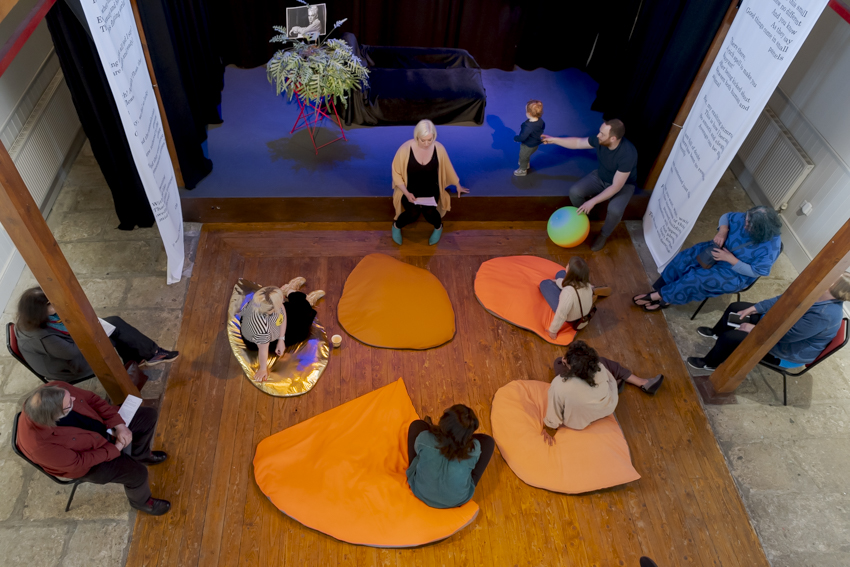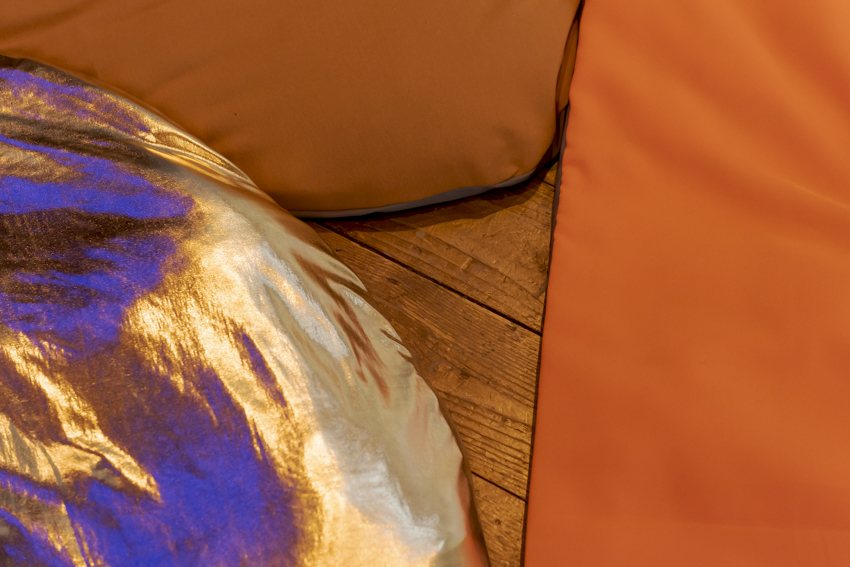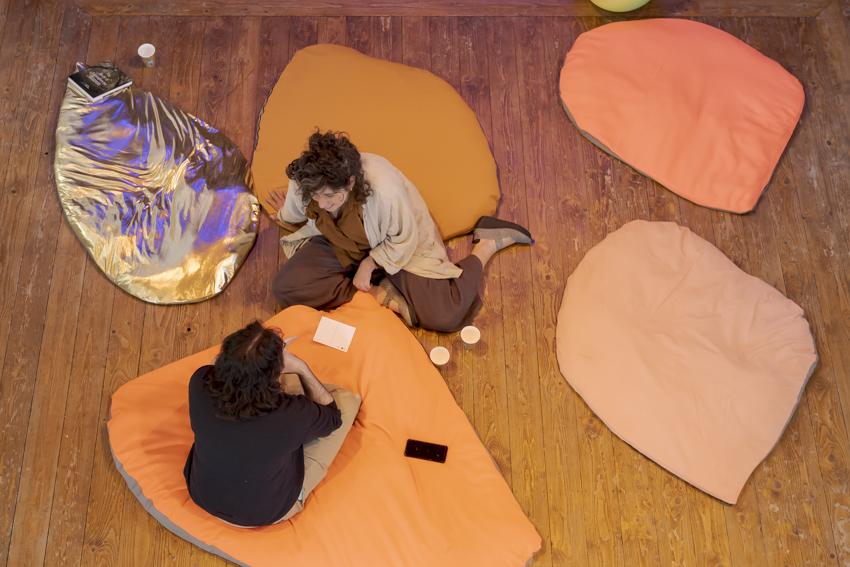HOSPITALITY POLICY
Last amended: June 2023
In 2022 Kunstverein Aughrim commissioned artist Jennie Moran to devise a working hospitality policy for the fledgling kunstverein. What follows is a set of steps that act as guidelines for our thinking around what hospitality means in the context of a public-facing curatorial production office, located in a small town in rural Ireland, and working with artists nationally and internationally as part of a network with roots in Germany and Austria, and sisters in Amsterdam, Milan, New York, and Toronto. These guidelines were presented by Jennie Moran in May 2023 as part of Stone Soup, Kunstverein Aughrim’s temporary friendly takeover of the Courthouse Arts Centre.

Say Yes to who or what turns up
Let us say yes to who or what turns up, before any determination, before any anticipation, before any identification, whether or not it has to do with a foreigner, an immigrant, an invited guest, or an unexpected visitor, whether or not the new arrival is the citizen of another country, a human, animal, or divine creature, a living or dead thing, male or female.
(Derrida and Dufourmantelle, 2000, p.77)
Make Space – design a space to maximise moments of human shared experience.
Gather Dust – Get people to be in the same geographical space together, or at least alongside each other so that their stories can merge momentarily. I don’t mean the life stories that we have all told a million times. I picture instead the invisible pollen of ourselves that contain our memories, our dreams, our yearnings, our breakages. I imagine that we leave fragments behind us, especially in places where we have shared something, like a meal or an experience. I think too that the more these fragments accumulate in a place, floating and swirling and intermingling, the more genuine the place feels. There is a shared human familiarity that we can sense, and it is a good feeling.
This invisible emotional archaeology, this dust, makes for believable spaces. It lodges in corners, gently softening them, accumulating layers of “rich silences and wordless stories”. We can’t see this dust, but we know it’s there. It provides reassurance:
This is a place in which others, before me, have laughed, daydreamed, loved, argued, rested, napped, cried, invented something. I can be here.
This dust offers us habitability.
Share Heritage – Consider a practice which embraces reciprocity and celebrates the idea that the guest has arrived here on our threshold to save us from ourselves. If strangers didn’t appear in our towns and villages we would be stuck in a quagmire, looking at our cousins. Let us brace ourselves for transcendence.
Nurture Bodies – provide shelter, food, entertainment.
Celebrate Ritual – Think about the role of your presence. Are you there, participating in these operettas as they unfold?
Leave – what is it like to part? This is a very important part of the hospitality exchange. If the guest doesn’t leave properly, the whole system implodes.

Softening Corners
We humans endure lots of harsh landscapes in our daily lives - boundaries, borders, barriers; lines not to be crossed. But we are a non-geometric shaped species. Our bodies do not contain straight lines or 90° angles. We seek refuge from this self-imposed rigidity in nature – we traipse across lumpy topography, stand on scary cliffs, watch trees bend for wind; rivers etch their curvy desire paths, daydream on cloud formations, sprawl out in parks caressing blades of grass with our fingertips while we half-heartedly fathom the infinite micro-organisms below us. We need these breaks from straight lines. We need to touch things that are porous and might yield to us. We also need to feel minded and held by a space, adjacent to other humans.
The amenities we create for ourselves are often designed to execute a job of work. A hospital’s primary function for instance, is to treat disease; a school’s is to educate etc. We engineer these spaces around their primary function. Systems are put in place in anticipation of high demand. We try to keep things smooth, clean and efficient. Eventually, or sooner than that, all these clean straight lines and systems grate on the nerves.
Softening Corners is the conscious act of applying an extra layer of humanity, porousness, poetry to a designed space. This is done in a way which honours the job of work to be carried out in this space, and looks after those that run and use this amenity.
